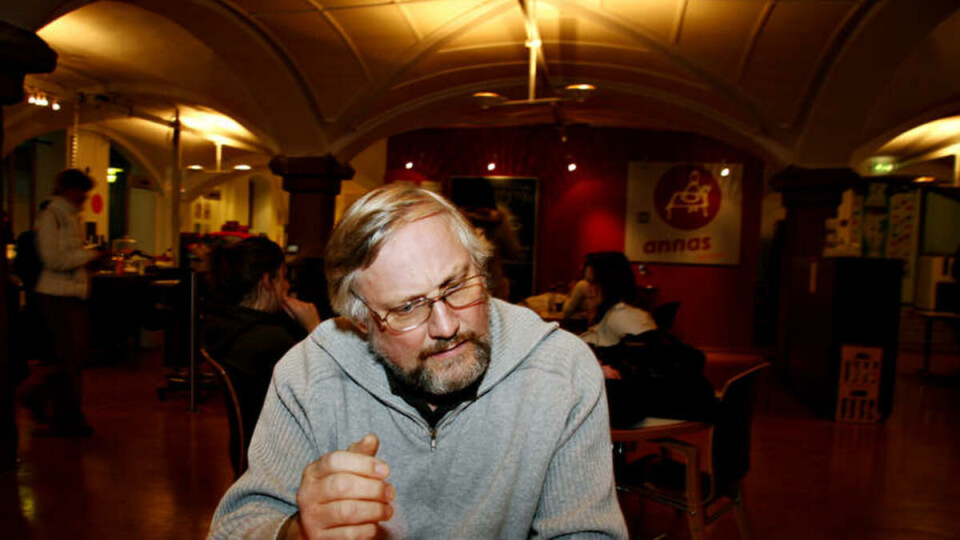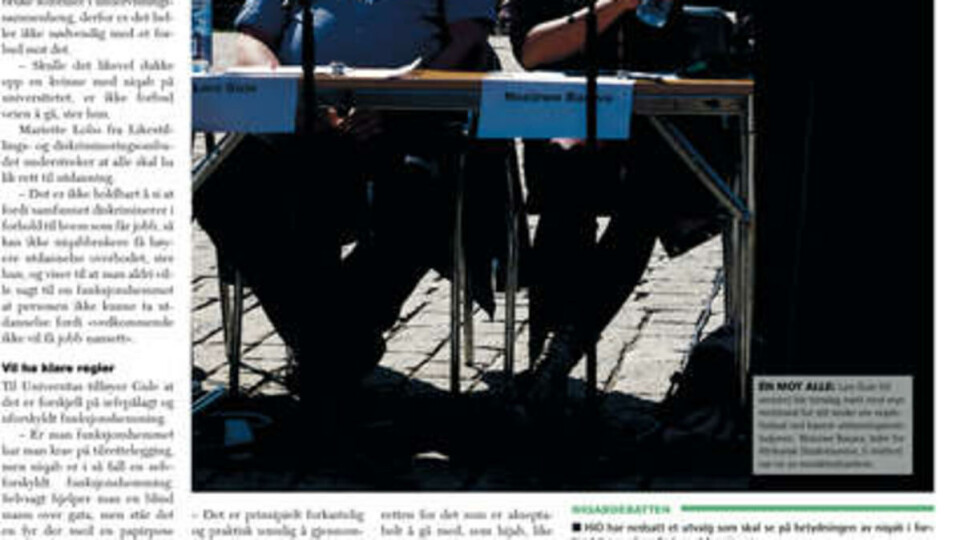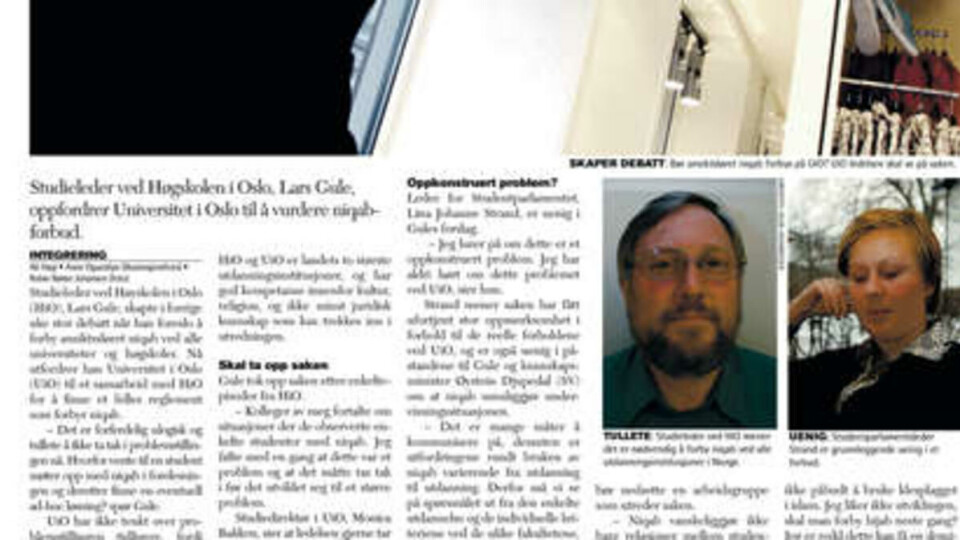
One in three wants a ban
Seven out of ten are sceptical and one in three want a ban on niqabs in teaching situations. – Surprisingly few, is Lars Gule’s reply.


– The use of niqab in teaching situations is professionally impossible and unacceptable, says Lars Gule, Head of Studies at Oslo University College (HiO).
He is surprised that more than 28 per cent of the Norwegian population feel that niqab should be allowed in teaching situations and during exams in higher education. The nationwide study was conducted by Sentio on behalf of Universitas and the National Union of Students in Norway (NSU), and the results show that 36 per cent of the Norwegian population want a ban, while 35 per cent disapprove of a ban and say that should be up to the individual to decide whether or not to wear niqab.
– People should wear what they want, but not in every situation. The only sensible and practical solution would be to introduce a ban in teaching situations, Gule says.
Nevertheless, he believes that the use of niqab is on the rise.
– There seems to be a trend among Muslims in the western world to assert their cultural and religious identity.
The largest share of people in support of Gule’s suggestion was found in the age groups 50-59 and 60 or more. 50 per cent and 47 per cent in these age groups respectively agreed that there should be a ban on niqab. Politically, people who voted FrP were the least tolerant of niqab, and 57 per cent were in favour of a ban.
Not a problem
This spring, HiO appointed a committee to look into the use of niqab. The conclusion was not to introduce a ban. The same decision was made at the University of Oslo (UiO).
– We cannot see that this is an actual problem. There is no need to deal with this until it becomes something that needs dealing with, says Vice-rector at UiO, Inga Bostad.
However, she agrees with some of Gule’s views.
– I understand some of Gule’s arguments and agree that there are certain problems that may arise in connection to cultural and religious expressions such as niqabs. Still, we would rather have a meeting with the individual student if this becomes a problem.
Bostad feels that there are several principles involved, including the freedom of the individual, and says that the result of the study shows that people understand that there are several aspects involved.
– Terrifying
President of the National Union of Students in Norway, Per Anders Langerød, is of a very different opinion.
– Is the opposition to niqab really that strong? That is terrifying and shocking, is his immediate response.
– Pieces of clothing, behaviour and religious symbols should never become part of the regulations at universities and university colleges. Debate, diversity, openness and democracy are much more important than any other principle. Academia must be open to all.
General Secretary Shoaib Sultan at the Islamic Council of Norway is also critical to a possible ban.
– In many ways, niqab is not necessary, but we don’t want a ban. It would be better to start a dialog with the people who use it if a situation was to arise.
He is supported by the President of the Muslim Student Union, Usman Rana.
– The rights of the individual are central, and that everyone are able to practise their believes are essential to a liberal democracy.
He thinks that the debate is irrelevant.
– Naturally, a veil that covers most of the face can create challenges in a teaching situation, but Gule is making a big deal out of something that is not even a problem. Niqab is not mandatory in Islam and very few people actually use it.
Niqab in Tromsø
Nevertheless, this autumn, the University of Tromsø (UiTø) welcomed their first student wearing niqab.
At the time, the Medical Faculty where the student was registered asked the Department of Research and Academic Affairs (FSA) to look into the situation. FSA concluded that UiTø should be careful not to be the ones taking initiative to set standards in such cases. Professor at the Medical Faculty at UiTø, Georg Sager, agrees that the situation was new and unusual.
– This was very unusual to us. It didn’t occur to us that this could become a problem and so we wanted advice on how to precede.
The main person in this is a student from Pakistan who was registered on an international Master degree in pharmacology this autumn.
– We feared for the student’s safety. There are a lot of experiments and laboratory testing going on, and when you are working with dangerous substances and fluids you need to make full use of your senses, Sager says.
– Do you also find that there are problems with communication?
– Both yes and no. We do the best we can and things are working out, but it new.
Reduced trust
Gule says that to him, a situation such as the one in Tromsø would become very difficult.
– I will not accept to carry the burden of reduced trust and communication based on other people’s religious choices. That is what the people who wear niqab are demanding. If I had worked in a shop and someone wearing niqab had entered, I would have demanded her to take off her mask or I would not help her. I would have done the same thing to someone wearing a balaclava.
– Are you saying that you will not even speak to someone wearing niqab?
– Yes. And that is because they have already communicated that they will not speak to me.

































